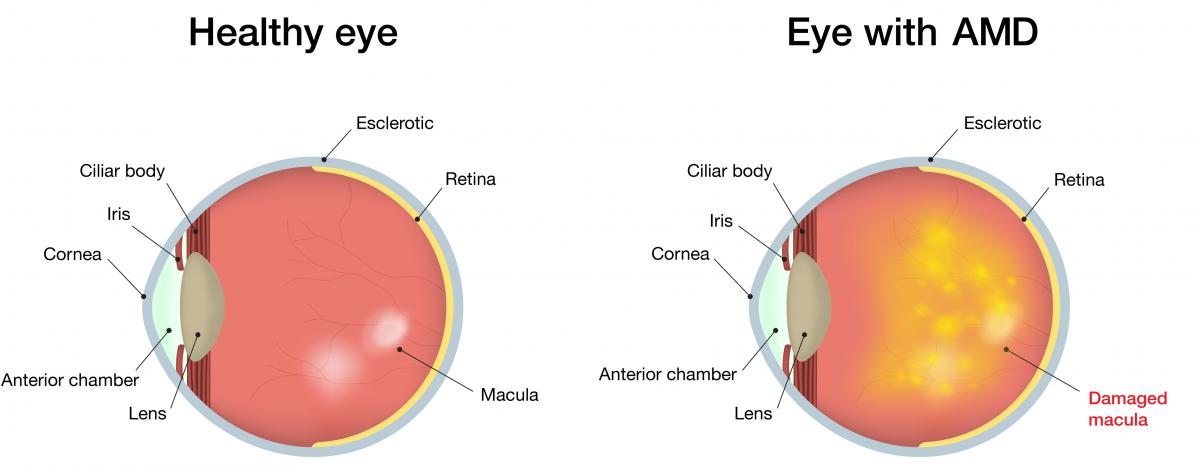Genetics, lifestyle, and diet are major factors that determine your risk of developing AMD. Take our true-or-false quiz to learn more about AMD and find out what steps you can take to reduce your risk of losing your precious eyesight to this condition.
Decide whether each statement is true or false. Check your answers below.
- AMD affects the macula, a small area of the retina responsible for central vision and the ability to see fine details.
- There are two forms of AMD: wet and dry.
- What you eat has little effect on the likelihood that you’ll develop AMD.
- There is no way to treat the dry form of AMD.
- African or Asian ancestry increases your chances of developing AMD.
- AMD causes rapid changes in your vision.
- Taking vitamins slows down the progression of dry form AMD.
- Smoking has no link to eye disease, including AMD.
- If you have AMD, it’s easy to monitor its progression at home.
- AMD rarely results in total blindness.

Answers
- True. As the name indicates, AMD affects this tiny portion of the retina, causing distorted central vision, blurriness, and an eventual loss of central vision.
- True. Dry AMD is the most common type, while wet AMD is more serious. Dry AMD happens when aging causes the macula to become thinner and tiny clumps of protein called drusen grow. Wet AMD is caused when fluid leaks from abnormal blood vessels under the macula.
- False. Eating a diet high in saturated fats increases your chances of developing AMD. Foods with a lot of saturated fat include meat, cheese and butter. In addition, obesity is a risk factor for AMD. A balanced, nutrient-rich diet is beneficial for everyone, especially those with AMD. Include lots of dark leafy greens, cold-water fish, and yellow fruits and vegetables.
- True. However, several promising new treatments may be just over the horizon. These include stem cell therapies and different types of drugs.
- False. Caucasians have a greater genetic risk of developing AMD.
- False. The early stages of AMD often present no symptoms at all, but early diagnosis can slow disease progression. This is one reason it’s crucial to get a comprehensive eye exam at least by age 40, then as often as your ophthalmologist recommends.
- True—but not in all cases. Ask Dr. Matzkin or Dr. Herron if a vitamin and mineral regimen may help you. Some people can benefit from taking the following supplements daily:
-
-
- Vitamin C (500 mg)
- Vitamin E (400 IU)
- Lutein (10 mg)
- Zeaxanthin (2 mg)
- Zinc (80 mg)
- Copper (2 mg)
-
- False. Multiple studies have shown a definitive link between smoking cigarettes and developing AMD. In fact, smokers are twice as likely to get AMD as nonsmokers. Quitting reduces your risk of getting AMD and may also slow its progression if you already have it.
- True. Looking at the Amsler grid daily is a simple way to track AMD progression. If you’re at high risk of developing AMD, it’s a good idea to look at an Amsler grid periodically and call Allied Eye if you notice any vision changes.
- True. Advanced macular degeneration may result in the loss of central vision, but it rarely leads to total blindness. Most people with AMD can still use their peripheral (side) vision even when central vision is lost.
At Allied Eye, we help you see the world more clearly through quality eye care. Our one-stop shop offers comprehensive eye exams, cataract surgery with multifocal implants, diabetic eye exams, LASIK, treatment for dry/watery eyes, and so much more! We even have our Allied Optical Shop inside our facility for your convenience. Call or text us to learn how Allied Eye can help with your eye care needs, or to schedule an appointment (423) 855-8522.
References:
What Is Macular Degeneration? - American Academy of Ophthalmology (aao.org)
Genetics and Age-Related Macular Degeneration - American Academy of Ophthalmology (aao.org)
Promising New Treatments for AMD - American Academy of Ophthalmology (aao.org)
What You Should Know About Macular Degeneration - American Academy of Ophthalmology (aao.org)


